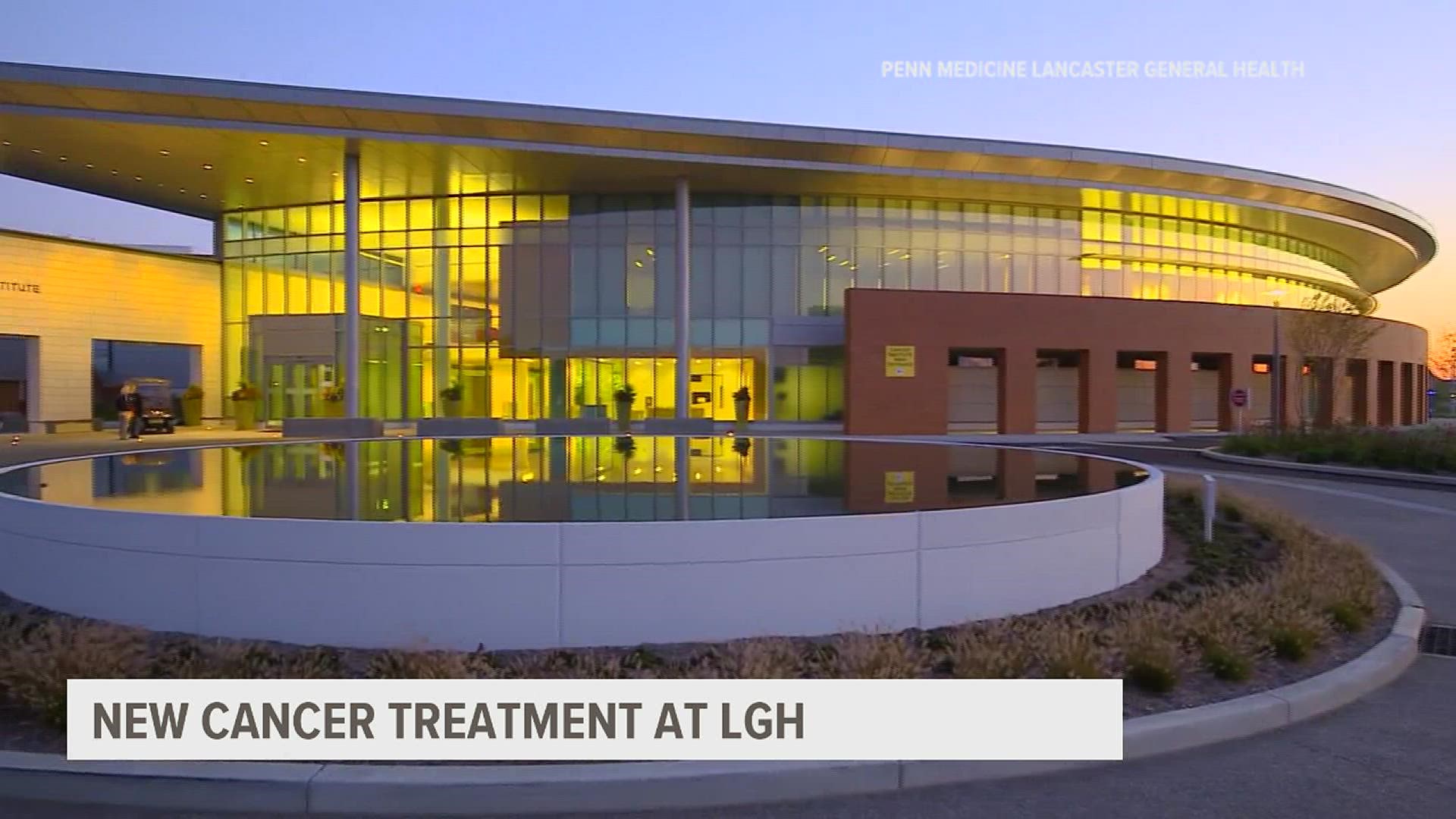YORK, Pa. — Penn Medicine Lancaster General Health’s Ann B. Barshinger Cancer Institute now offers the advanced cancer treatment CAR T-cell immunotherapy, a groundbreaking immunotherapy treatment that was developed at Penn Medicine in Philadelphia.
CAR T (Chimeric Antigen Receptor T-cell) is a type of cancer therapy that uses specially modified immune cells from a patient’s own body. T-cells, a type of white blood cell, are removed from the patient and reprogrammed to find and attack cancer cells when reinfused into the bloodstream.
Penn Medicine is a global leader in immunotherapy research that expands the safety and effectiveness of CAR T. CAR T was the first gene therapy to be approved by the Food and Drug Administration (FDA) and has brought a new era of cancer treatment options.
CAR T-cell therapy is used to treat patients with certain kinds of aggressive blood cancers that have not responded to one or more therapies, such as large B-cell lymphoma, the most common type of non-Hodgkin's lymphoma.
FOX43 spoke with the medical director at the Ann B. Barshinger Cancer Institute to find out why this new treatment could change cancer treatment in the future.
"We have a new option, that given just once, has the potential to cure someone, to save their life, and make them live longer," Dr. Randall Oyer said. "We are now finding that the original patients who were literally on their death beds from their advanced cancer, have been cured." In fact, the patients had no return of cancer in more than 10 years without additional treatment, something Dr. Oyer says is nothing short of astonishing.
The Ann B. Barshinger Cancer Institute provides CAR T-cell therapy in Lancaster for adult patients with Diffuse large B-cell lymphoma (DLBCL).
For other adult diseases which can be treated with CAR T, and for experimental CAR T therapies, patients are treated at Penn Medicine in Philadelphia.
Penn Medicine is also studying CAR T therapy for other forms of cancer and is enrolling appropriate patients in clinical trials.
For more information on CAR T-cell therapy, click here.

